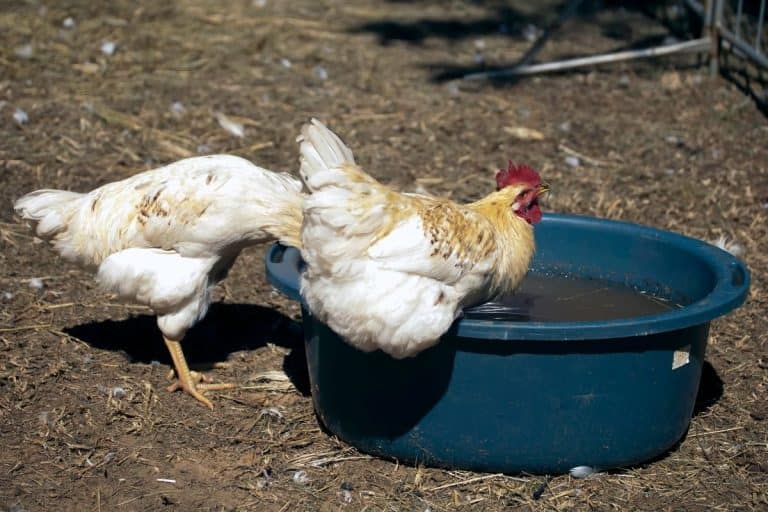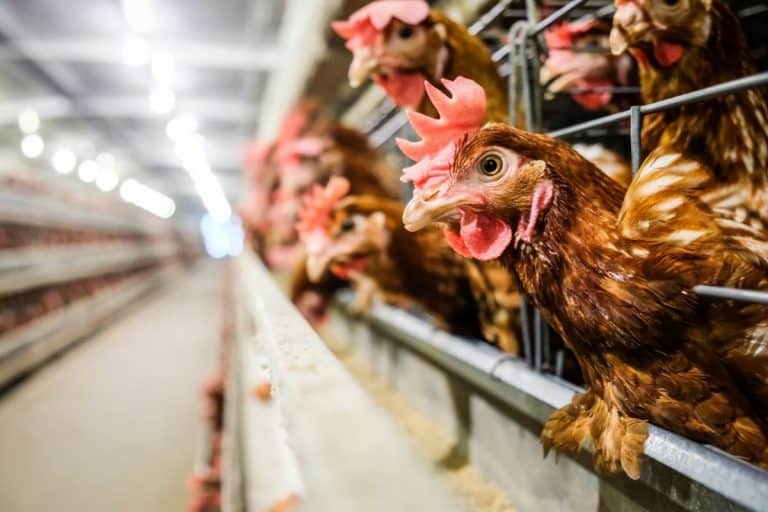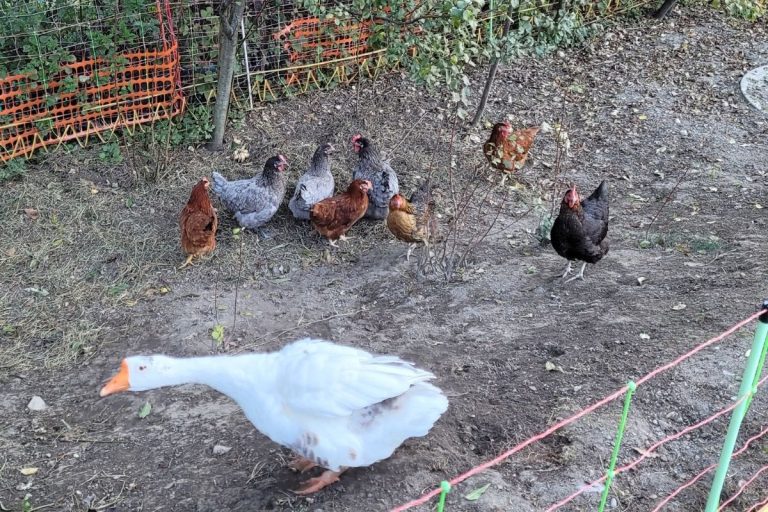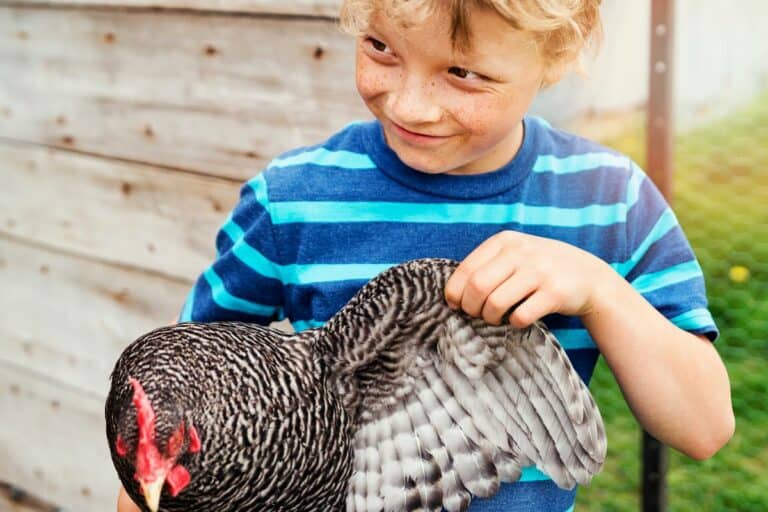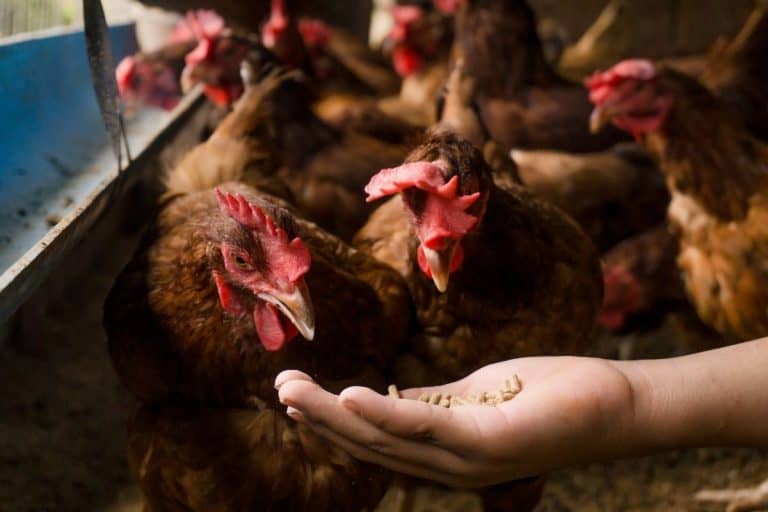Can Chickens Swim? (Do they enjoy it?)
Unless your property has a body of water, most people raising chickens probably haven’t thought much about whether they can swim or not. While these birds aren’t necessarily built for the act of swimming, it is certainly not impossible for them to do so. They may not be as graceful as their waterfowl counterpart, the duck, but they can hold their own for a little while in the water.
Chickens can swim, but not for long because they will quickly fatigue due to their lack of webbed feet and waterproof feathers.
While it is possible for chickens to swim in deeper waters, they prefer not to for several reasons. When compared to the duck, which is similarly sized but clearly meant for the water, it becomes obvious that the chicken’s lack of anatomical help really is their downfall. Read on to find out more facts about chickens and how they perform in the water.
But before you dive into this topic, did you know I've got a page packed with my go-to chicken stuff? From the best feed to handy tools, it's all there. Don't you want the best for your flock? Check it out right here.
Can a chicken float?
Chickens float rather well for not having waterproof feathers. A calm bird will float for a while, seeming pretty happy and content with the situation.
As long as they aren’t having a meltdown over being in the water, floating is the easiest thing for them to do. They can just paddle peacefully, enjoying cooling off for a bit, until the feathers become waterlogged.

What happens once the feathers are soaked?
Once the chicken’s feathers become completely soaked with water, no matter how well she swims and how calm she acts, she will sink like a rock.
This is one of the largest factors that play into why a chicken cannot swim for long. The feathers are not waterproof, therefore once they are fully saturated, she will no longer be able to float and will sink to the bottom.
Silkies sink the fastest
The breed of chickens called Silkies will sink faster than other breeds of chicken because of their unique and fluffy feathers. They soak up water very quickly and will be pulled under and drown potentially in a matter of seconds.
Wait, I have some recommendations for you!
Before you go any further, I want you to take a look at some of the recommendations I've handpicked for you. I think these are essential items you should have for your chickens flock. You can check them out and buy them directly from Amazon.
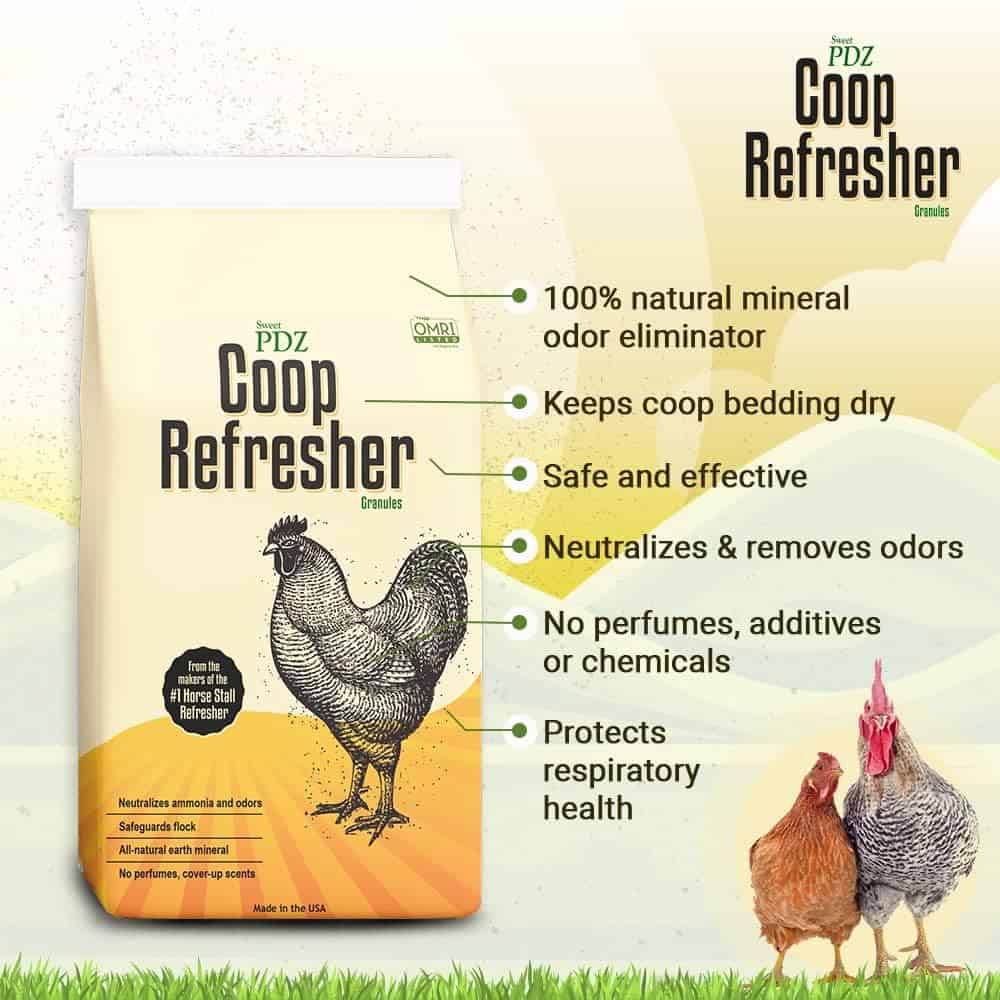 | 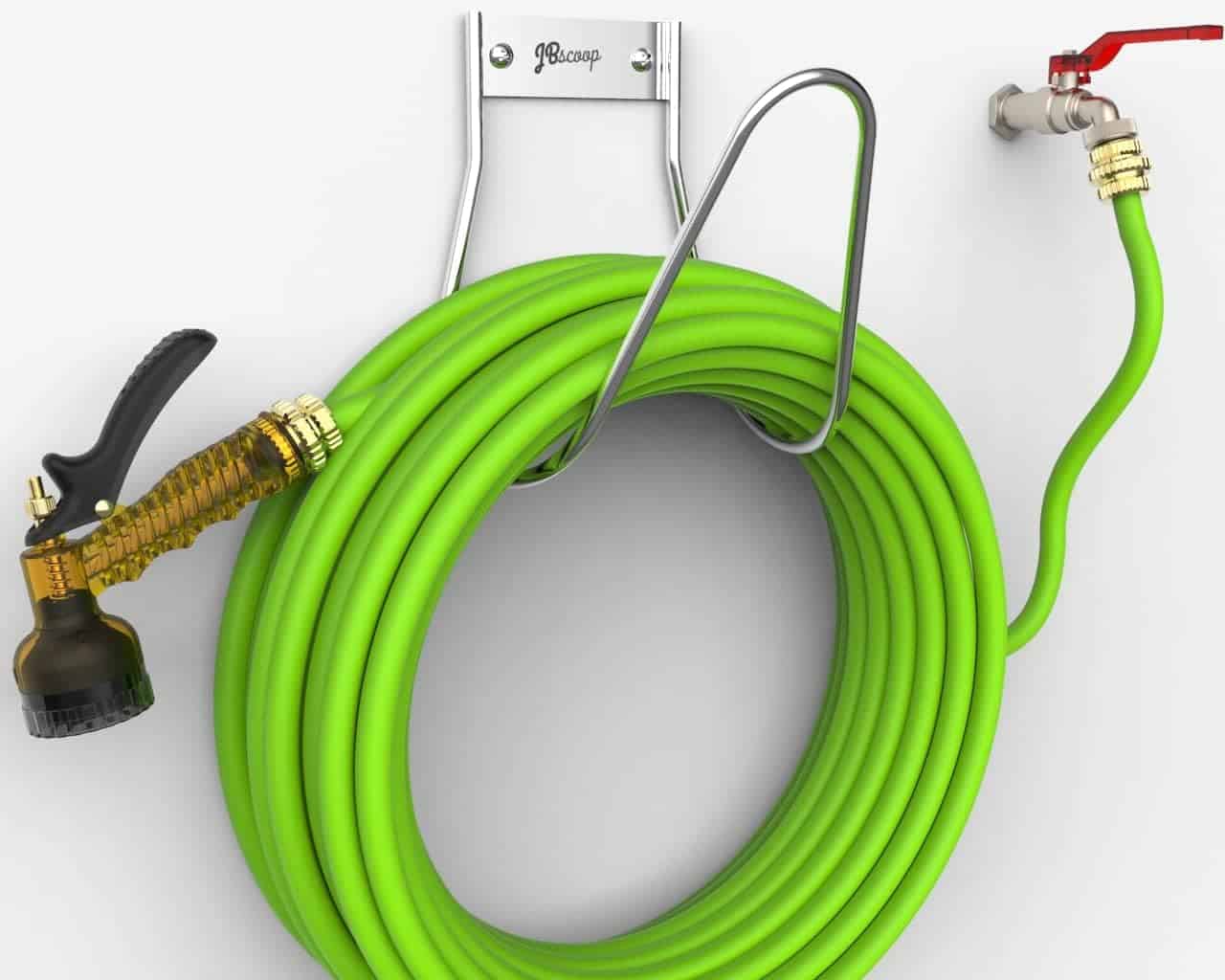 | 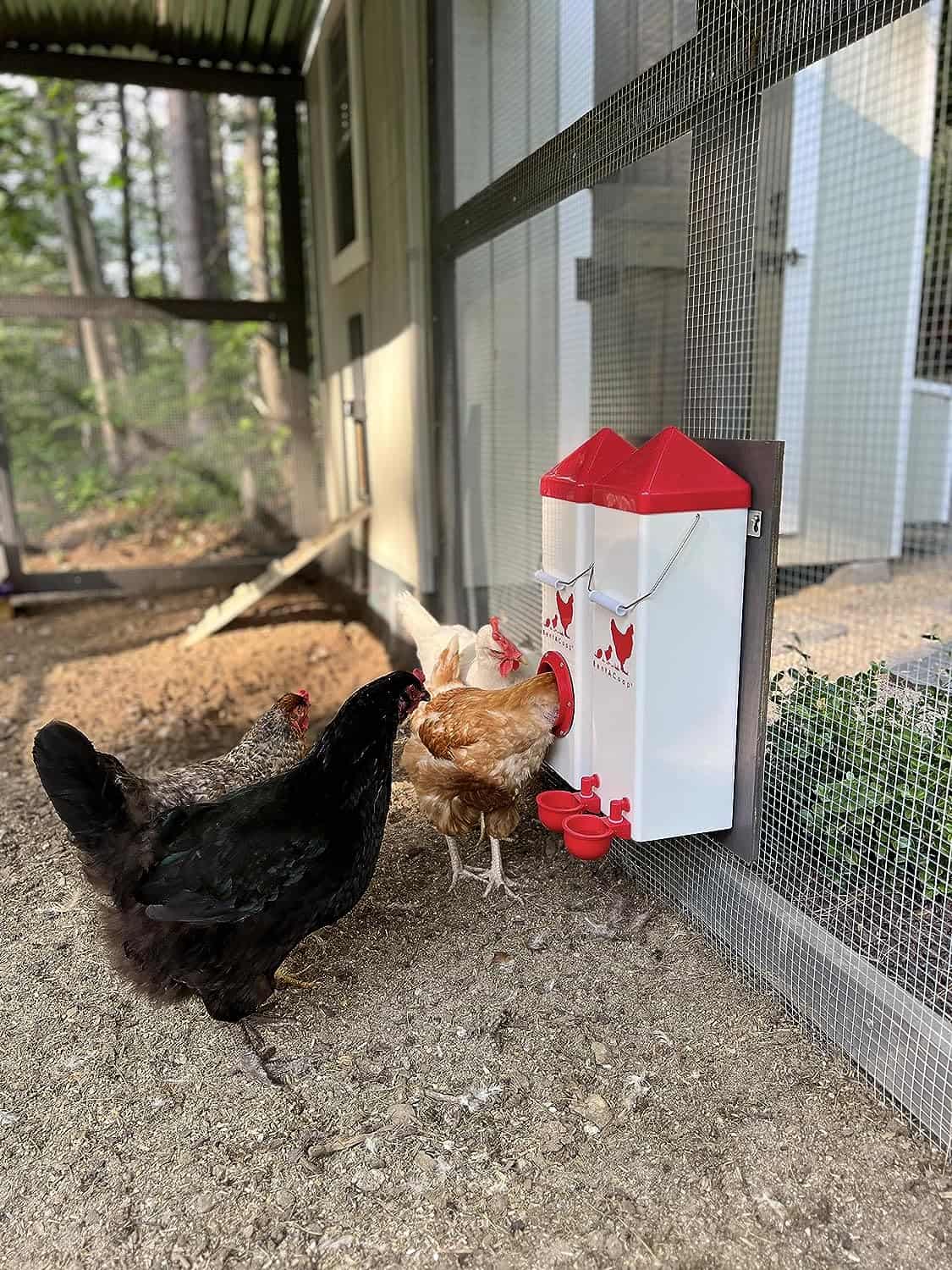 | 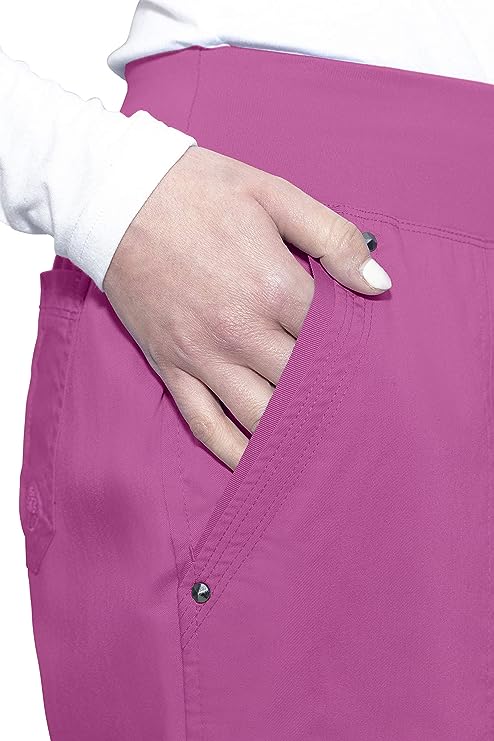 |
| Essential accessory for your coop | No more tripping over hoses! | Predator protection made easy | Comfort + style is possible |
How long can chickens swim for?
While chickens do have the innate ability to swim, the answer to this question does depend on the individual bird.
Generally, a calm and content chicken will swim for about 10-15 minutes. If they are panicky and flapping their wings a lot they will most likely tire themselves out quickly, making the odds of them drowning much higher.
How far can chickens swim?
Chickens are by no means equipped for long-distance swimming. You won’t see one making any kind of impressive hauls across rocky waters but maybe a short swim with an easy exit onto a shore or ladder is possible.
Can chickens go in a pool?
Many people raising chickens have taken to allowing the birds in the family pool or pond for fun as well as an easy way to cool down during the hotter months of the year.
If you are looking to provide your chickens with a place to cool off without having constant supervision during the summer months, then it is better to purchase a small “kiddie” pool (something like that should be enough).
This fun activity is harmless since the little pools can only be filled with a few inches of fresh water. While this is safe for the adults to use, do not allow small chicks to go into the water. They are woefully unprepared for swimming.
Are pool chemicals safe?
Whether or not pool chemicals are safe for chickens is unknown and should be used with caution. If you notice any irritation to their skin or feathers then the pool dips should be stopped.
Chickens also have no qualms about whether or not they are paddling in your freshly cleaned swimming pool or a large dirty puddle, they will inevitably poop in it. Feces from birds can contain bacteria that are harmful to humans, like salmonella. Even if it is in chlorinated water, it is still unsanitary.
Provide a personal pool with fresh water instead to ensure that the chickens are free from the potential harms of pool chemicals and the pool is also not in danger of being defecated in.
Do chickens enjoy swimming?
Just like people, no one chicken is the same. Some love spending time swimming, while others go into a complete panic if they are put into any water. Some chickens don’t seem to have a terrible time floating or paddling around a small body of water, but the average chicken chooses not to swim.
It seems to be instinctual for their survival to avoid deep water, since they are not physically equipped for many aquatic activities. The chicken’s swimming abilities are mediocre at best and should really not be left unsupervised in deep water.
Treating them like a toddler in a pool is good practice to ensure that there are no chicken casualties. With the way that their feet are shaped and their easily sodden feathers, they are not meant for much swimming, but they can certainly try!
Chickens can’t ‘right’ themselves
When a duck, or most animals for that matter, is tipped upside down in the water, they have the ability to correct their position and get back to the surface due to their buoyancy. Because chickens don’t have the wonderful waterproof feathers that a duck has, it cannot ‘right’ itself in the water and will end up swiftly drowning.
No webbed feet
Another reason that chickens struggle to swim for long distances or periods of time is because of their lack of webbed feet. The duck has large webbed feet that make propelling through water a breeze. While a chicken does have the ability to paddle with the feet that they have, they are slower and less efficient, leading to fatiguing faster over a shorter distance.
No waterproof feathers
Ducks secrete an oil from their preening gland that they rub onto their feathers, making them waterproof. Chickens do not have this same preening oil, while they do have their preening gland and the secretion that it makes, it however doesn’t help to repel water. This particular oily substance varies depending on the species of bird.
How to prevent chickens from drowning
While it is true that the personalities of chickens vary significantly like people and other animals, the same goes for their intelligence. Sometimes a chicken will drown in a tub of water that you might have thought was too shallow for any accidents like that to happen.
The truth is, it’s possible and the only good way to prevent it is to ensure that your water basins for drinking are not too deep. As long as the sides are shallow enough for one silly and clumsy chicken to easily hop out of it, you should be fine.
Sometimes people have a pond or lake on their property that their chickens can get to. If there is a body of water that your birds have access to, then be sure to provide them with some kind of wooden ramp that they can easily climb onto if they find themselves wanting to go for a swim.
The likelihood that a chicken will go for a dip into the pond is slim, but there is also that exception to the rule.
Is it bad for chickens to get wet?
As a general rule, chickens prefer dry climates, their natural habitat. They enjoy dust bathing and throwing dirt on themselves, and typically only save getting their feet wet for whenever it’s truly necessary. A wet chicken can actually become hypothermic and ill much quicker than one would think.

What if the chicken is too cold?
A little water on the surface of feathers is fine, but if it’s not a hot summer month and a chicken finds herself soaked, it is possible that she could become sick or too cold. If this happens, it is important to warm the chicken up slowly, as the bird will be most likely in shock.
Take the bird inside and wrap them in a warm towel, and eventually put them inside a nesting box or crate with plenty of blankets and pine shavings.
Swimming isn’t the chicken’s first choice for fun
At the end of the day, chickens are not waterfowl by nature and will typically prefer their daily dust bath over a dip in the family pool. Not forcing your chickens to swim and giving them the option is the best way to avoid a traumatized chicken and poop-filled pool.



